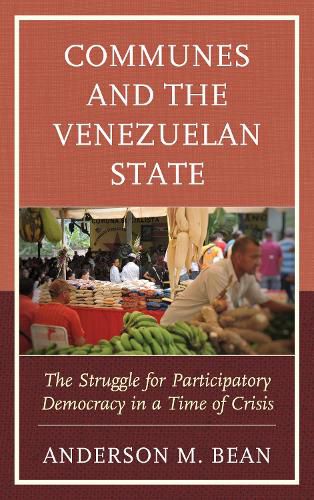Readings Newsletter
Become a Readings Member to make your shopping experience even easier.
Sign in or sign up for free!
You’re not far away from qualifying for FREE standard shipping within Australia
You’ve qualified for FREE standard shipping within Australia
The cart is loading…






Since 2006, Venezuela has witnessed an explosion of different forms of popular power and participatory democracy. Over 47,000 grassroots neighborhood-based communal councils and 3,000 communes have been constructed. In Communes and the Venezuelan State: The Struggle for Participatory Democracy in a Time of Crisis, Anderson Bean offers a critical analysis of these experiments in popular and workers' power and their potential for societal transformation within and beyond Venezuela. Drawing on extensive ethnographic research, Bean demonstrates how workers and peasants, through networks of popular power, exercise agency over their own development while facing challenges from the capitalist state. Most importantly, this book connects with the far-reaching implications that the communal movement in Venezuela has for building a society responsive more to the needs of ordinary people than to the desires of the elites.
$9.00 standard shipping within Australia
FREE standard shipping within Australia for orders over $100.00
Express & International shipping calculated at checkout
Since 2006, Venezuela has witnessed an explosion of different forms of popular power and participatory democracy. Over 47,000 grassroots neighborhood-based communal councils and 3,000 communes have been constructed. In Communes and the Venezuelan State: The Struggle for Participatory Democracy in a Time of Crisis, Anderson Bean offers a critical analysis of these experiments in popular and workers' power and their potential for societal transformation within and beyond Venezuela. Drawing on extensive ethnographic research, Bean demonstrates how workers and peasants, through networks of popular power, exercise agency over their own development while facing challenges from the capitalist state. Most importantly, this book connects with the far-reaching implications that the communal movement in Venezuela has for building a society responsive more to the needs of ordinary people than to the desires of the elites.